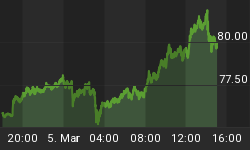China is removing a limit on foreign ownership of carmaking joint ventures that has been in place since 1994, and that comes as welcome news for Tesla, which has been trying to set up a local manufacturing unit in China while facing a lot of negative publicity at home of late. And let’s face it, Tesla could sure use the win.
China—which has been limiting foreign carmakers to owning no more than 50 percent of any local joint venture—will lift the foreign ownership cap for electric vehicle (EV) and plug-in hybrid car manufacturers as early as this year, according to the Chinese state planner. Makers of commercial vehicles will see the restrictions removed in 2020, and the wider auto market will have the limits scrapped by 2022.
Earlier this year, reports suggested that Tesla and China disagree over the future ownership of a Tesla factory in Shanghai. China has insisted that all vehicle-manufacturing plants should be joint ventures with local partners, and currently all foreign carmakers must have a Chinese partner to manufacture vehicles locally. But Tesla wanted to have full ownership of the future factory.
The removal of the Chinese ownership limits can be beneficial to the U.S. EV maker and other carmakers focused on new-energy vehicles, at least in the short term, analysts told Reuters.
China is Tesla’s second-largest market after the United States, but the trade spat between China and the U.S. was threatening to make Tesla’s vehicles in China even more expensive than they are now. For carmakers without local Chinese manufacturing—such as Tesla—more tariffs would render their cars even more expensive niche products. Related: Could Tesla Be Profitable By The End Of 2018?
Elon Musk has recently called on U.S. President Donald Trump to level the playing field for car tariffs between the U.S. and China—and he did this a couple of weeks before the current trade row.
Last week, Chinese President Xi Jinping vowed to open the Chinese economy and reduce some import tariffs, including on cars, in a speech seen as an attempt at averting an all-out trade war.
Later the same day, President Trump tweeted that he was “Very thankful for President Xi of China’s kind words on tariffs and automobile barriers...also, his enlightenment on intellectual property and technology transfers. We will make great progress together!”
By Tsvetana Paraskova for Oilprice.com
More Top Reads From Safehaven.com:

















